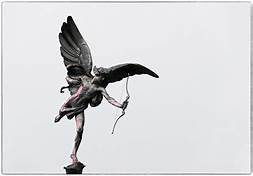By Keith Tidman
Someone might say, I love my wife or husband. I love my children and grandchildren. I love my extended family. I love my friends.
All the while, that same someone might also avidly announce, I love…
We’re free to fill in the blanks with endless personal possibilities: people, events, occasions, experiences, and things we care deeply about, which happen providentially to get elevated by their singular meaning to us on an individual level. The neurons that get triggered in each of us, as-yet unexplainably making what you uniquely experience by way of love as different from what everyone else definably feels — the subjectivism of sensation.
A hazard in applying the word ‘love’ across manifold dimensions like this is that we may start to cloud the concept, making it harder to distinguish love from competitor sentiments — such as simply ‘liking’, ‘fancying a lot’, or maybe ‘yearning’. Uncertainty may intrude as we bracket sentiments. The situation is that love itself comes in many different kinds. Steeped in a historical, cultural, spiritual, scientific, rational, and emotional melding pot. Three of the best-known semantic variants for love, whose names originate from Greek, descend to us from early philosophers.
They are Eros (pictured above on his pedestal in London), which is intensely passionate, romantic, and sexual love (famously fêted by the arts). Intended also for species proliferation. Agape, which is a transcendent, reciprocated love for God and for all humanity, sometimes couched as a form of brotherly love. And philia, which is unconditional love for family and friends, and even one’s country. As well as ‘companionate’ love enjoyed, for example, by a couple later in life, when passion’s embers may have cooled. Philia evokes a mix of virtues, like integrity, fairness, parity, and acquaintance.
Those terms and definitions imply a rational tidiness that may not be deserved when it comes to the everyday, sometimes-fickle interpretation of love: when and how to appropriately apply the word. The reality is that people tend to parse ‘love’ along sundry lengths, widths, and heights, which can be subjective, even idiosyncratic, and often self-servingly changeable to suit the moment and the mood. Individual, family, and community values are influential here.
Love may even be outright ineffable: that is, beyond logical explanation and the search for the source of societal norms. Enough so, perhaps, to make the likes of Aristotle, St. Augustine, Friedrich Nietzsche, Arthur Schopenhauer, Bertrand Russell, and Simone de Bouvier — among other romantics and misanthropes, who thought about and critiqued the whimsicality of love — turn in their graves.
At the very least, we know that love, in its different kinds, can be heady, frenzied stuff, seemingly hard-wired, primal, and distractingly preoccupying. Of course, the category of love might shift — progressively, or abruptly — in accordance with evolving experiences, interactions, and relationships, as well as the sprouting of wholly novel circumstances. Arguably the biology, chemistry, and synapses of the brain, creating the complexities of mind, deterministically calling the shots.
Some contest that the love that others may claim to feel is not actually love, but something akin to it: either friendship, or impassioned obsession, or veneration, or lust, or appreciation of companionship, or esteem, or simply liking someone or something a whole lot. Distinctions between love and alternative sensations, as they wax and wane over time, are for the individual person to decide. We correctly accede to this element of individuality.
Love, as for all the other emotions just mentioned, has a flipside. Together, opposites make wholes — their serving as the source of what’s possible. Along with love can come dispiriting negatives, like possessiveness, insecurity, distrust, noxiousness, suspicion, sexist hindrances, jealousy, and objectification.
There can be a tension between these latter shadowy forces and such affirmative forces as bright-spiritedness, cleverness, romanticism, enchantment, physical attractiveness, empathy, humour, companionability, magnetism, kindness, and generosity. Such a tension usually lessens with the passage of time, as the distinctions between the good and the bad become less hazy and easier to sort from among.
There’s another form of tension, too: Individual values — acquired through personal reflection, and through family and community convictions, for example — may bump up against the stressors of love. Among love’s influences is sometimes having to rethink values. To refine norms in order to accommodate love. There may be justifiable reasons to believe we gain when we inspiringly and aspiringly love someone or something.
The gradations of moral and behavioural values challenge our autonomy — how we calculatedly manage life — as the effects of love invade our moment-to-moment decision-making. Choices become less intentional and less free, as we deferentially strive to preserve love. We might anxiously attempt to evade what we perceive, rightly or misguidedly, as the vulnerabilities of love.
When all is weighed, love appears wittingly compelling: not to cosset self-seeking indulgences, but rather to steer us toward a life affectionately moored to other people and experiences that serve as the fount of inspiration and authentic meaning. In this way, rationality and love become mutually inclusive.




